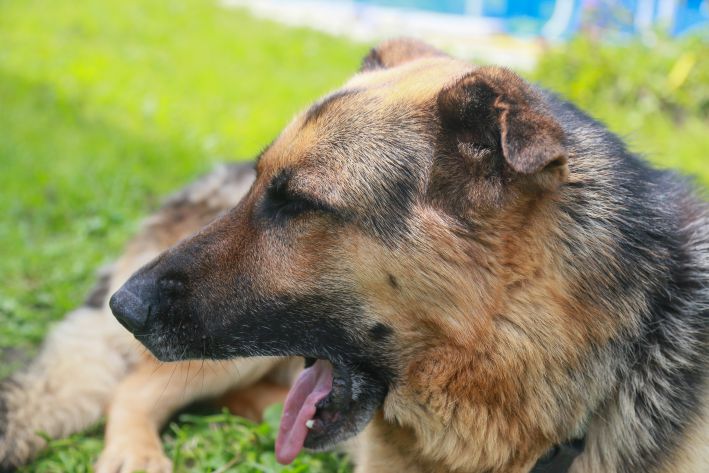Dogs have an incredibly developed sense of smell, which allows them to sense the world around us in a much richer and more varied way than we can imagine.
However, there are certain scents that can cause discomfort or even disgust in dogs.
These scents can range from natural to artificial, and understanding what scents our four-legged friends don't like can be helpful in creating a comfortable environment for them.
Citrus
People may love the smell of citrus, but dogs generally hate it. Oranges, lemons, limes, and grapefruits are repulsive to them.
Citrus fruits contain oils that make them very aromatic and irritating to dogs' noses. Not to mention, they are toxic to dogs.

Don't let your pet eat citrus fruits, and don't spray citrus essential oils around them. The latter are especially toxic because they are concentrated forms of citrus oil. Even inhaling citrus oil can be extremely toxic to dogs and cause minor damage over time.
Spices
Hot peppers like jalapenos and chili peppers contain capsaicin, a chemical that gives them their fiery taste. In dogs, it causes sneezing, coughing, and watery eyes.
Dogs are much smaller than humans, so the effects of capsaicin are much more pronounced. What tastes slightly spicy to humans may taste very spicy to a dog.
Some people use pepper as a natural way to repel dogs, but be careful not to cause discomfort. A small pinch is enough. Dogs are much more sensitive to smell than taste.
Ground spices
Ground spices include cinnamon, nutmeg, allspice, ginger, cardamom, mustard, and cayenne. People love adding them to their food, but dogs aren't thrilled. All spices are toxic, although the exact signs vary.
Ground spices have such a strong aroma that they clog dogs' noses. Be especially careful with nutmeg, as it can cause hallucinations and seizures if consumed in large quantities. It is one of the most toxic spices, so it is recommended to avoid it altogether in the presence of a dog.
Vinegar
Vinegar can be used as a cleaning agent and is also good for removing dog odor and urine stains. However, it should not be fed to your dog or used directly on him. When sprayed or inhaled, vinegar can irritate your dog's skin and respiratory system.
When using it for cleaning, you must thoroughly clean the room before allowing the dog back in.
Be sure to rinse anything your pet uses directly, such as a bowl or bedding. Otherwise, your pet may begin to avoid these items because of the smell.
Fresh herbs
While humans love greens, some are especially unpleasant for dogs. Fresh herbs like basil, mint, and rosemary contain essential oils that give them a very unpleasant odor. Additionally, some fresh herbs can be toxic to dogs in large quantities.
The oils in these plants evaporate over time, so they won't smell as strong when dried.
Alcohol
Dogs do not share humans' fondness for the strong and unpleasant smell of alcohol. In fact, it can be extremely dangerous to them if it gets into their system.
Alcohol affects dogs in the same way as it does humans, but they are much smaller, so it affects them more. This also means that your pet is more likely to end up with alcohol poisoning and similar problems.
Alcohol can cause a variety of problems, from intoxication to vomiting, diarrhea, and even coma. Keep alcohol away from your curious dog, and avoid using alcohol as a cleaning agent.
Household cleaning products
Chemicals found in cleaning products, such as chlorine and ammonia, produce a strong bleach-like odor that dogs cannot stand.
Strong cleaning products often emit gases that are harmful to dogs. People can avoid this problem by using them in ventilated areas or by wearing a mask. Dogs simply walk away. This protects them from developing health problems associated with bleach and similar cleaning products.
Cleaning products are dangerous for dogs, as they can cause skin irritation, eye damage, breathing problems, and even organ failure. Keep your dog out of the room when using them.
Mothballs
Mothballs are tiny balls of pesticides that repel moths from clothing and furniture. They are full of chemicals, and luckily dogs find them very smelly, which discourages them from eating them. This is a good thing, as these balls are very toxic to dogs.
Mothballs can cause all sorts of health problems in dogs, including vomiting, diarrhea, seizures, liver damage, and even death.
Perfumery
The smell of perfume is pleasant, but dogs would disagree with humans on this issue. The strong scent of perfume repels many dogs, as they have a much more sensitive nose.
Perfumes are made from a variety of materials, some of which are toxic to dogs. If they lick or inhale the perfume, they may experience skin irritation, allergic reactions, breathing problems, and even poisoning.
Nail polish
Nail polish has little to no odor once applied and dried, but the bottle of polish can smell very strong to dogs. Most dogs naturally avoid this chemical smell.
Nail polish can cause a variety of health problems if it gets into your dog's system. Vomiting, diarrhea, and upset stomach are just a few of the problems your pet may suffer from if it gets into his stomach.
Onions and garlic
Garlic and onions are among the most toxic foods for dogs. Most people know that dogs shouldn’t eat chocolate, but these plants are much more toxic. Luckily, dogs hate the smell of them. If they eat or inhale them, it can lead to anemia, weakness, lethargy, and even organ failure. Don’t give your dog any food that contains onions or garlic.
Previously we reported on cat breeds that are friendly.









